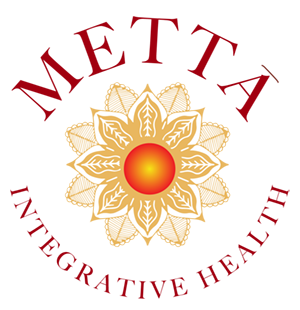
What is Ayurveda?
Science of Life
Ayurveda, known as the “Science of Life,” is a holistic medical system that originated in India over 5,000 years ago. It views health as a dynamic, ever-changing balance between the body, mind, spirit, and environment, rather than simply the absence of disease. Recognizing that every individual is unique, Ayurveda offers personalized approaches to prevention and healing, working harmoniously with your body’s natural rhythms, energy patterns, and innate intelligence to restore vitality and harmony.
At its core, Ayurveda is built upon foundational principles that connect us deeply to the natural world. The Five Elements—Ether (space), Air, Fire, Water, and Earth—form the basis of all nature and human constitution. These elements combine uniquely in each individual as the Three Doshas—Vata, Pitta, and Kapha—which regulate physical, mental, and emotional functions. Rather than merely managing symptoms, Ayurveda seeks to uncover and address the root causes of imbalance, setting a foundation for lasting wellbeing.
Fundamental Principles of Ayurveda
The Five Elements (Pancha Mahabhutas) – Ether (space), Air, Fire, Water, Earth form the foundation of both nature and our constitution.
The Three Doshas – Vata, Pitta, and Kapha are energetic forces that regulate our physical, mental, and emotional functions.
Vata: Associated with movement, circulation, and communication, it's linked to the elements of Air and Space.
Pitta: Governs digestion, metabolism, and transformation, associated with Fire and Water.
Kapha: Provides stability, structure, and immunity, linked to Earth and Water.
Individual Constitution (Prakriti) -
Each person has a unique combination of doshas that determines their physical and mental characteristics, influencing their health and susceptibility to imbalances.
Metabolic Fire (Agni) - The metabolic fire or digestive capacity that transforms food into energy and nutrients, responsible for assimilation and detoxification. A balanced Agni is crucial for overall health.
Toxins (Ama): A sticky, heavy, and toxic substance that accumulates when Agni is weak and food is improperly digested. Ama can disrupt normal bodily functions and lead to disease.
Oja (Immunity): The vitality, immunity and strength that arises when agni is healthy and ama has not accumulated. A strong vibrant body relies on a harmonious interplay of strong Agni, minimal Ama and abundant Oja.
Balance and Harmony - Ayurveda aims to restore balance and harmony within the doshas and between the mind, body, and spirit through diet, lifestyle, and herbal remedies.
Timeless Practices, Modern Relevance
Wholistic Therapies
Nutrition (Ahara) – Individually tailored dietary guidance to support digestion and energy.
Lifestyle (Vihara) – Rituals like abhyanga (oil massage), oral care, and sleep hygiene.
Breathwork (Pranayama) - Tools for nervous system balance.
Movement (Yoga Therapy) – Tools for physical alignment and mental balance.
Herbal Medicine – Botanical therapies for deep healing.
Marma Therapy – Energy therapies for deep healing.
Panchakarma – Profound detoxification and rejuvenation strategies.
The Medicinal Pharmacopoeia of Ayurveda
With 5,000 years of clinical practice and scholarly refinement, Ayurveda offers a vast pharmacopeia rooted in classical works like the Charaka Samhita, Sushruta Samhita, and Ashtanga Hridaya.
Key elements include:
Single Herbs (Ekasudha) – such as Ashwagandha for vitality, Triphala for digestion, and Brahmi for cognition.
Classical Formulations – like Chyawanprash, Dashamoola, and Trikatu, composed for synergistic effect.
Diverse Delivery Methods – decoctions, oils, powders, medicated ghee, fermented tonics, tailored to constitution, condition, and season.
This living tradition continues to evolve, with modern research increasingly correlating ancient use with pharmacognosy and phytochemistry.
Where Wisdom Traditions Meet Science
Ayurvedic Wisdom
Daily & seasonal routines based on natures cycles
Personalized diet & herbs
Deep detox & rejuvenation
Mind–body integration
Breath & movement
Modern Science Parallel
Circadian medicine
Microbiome research, pharmacognosy
Mitochondrial health and cellular regeneration
Psychoneuroimmunology
Autonomic nervous system regulation



